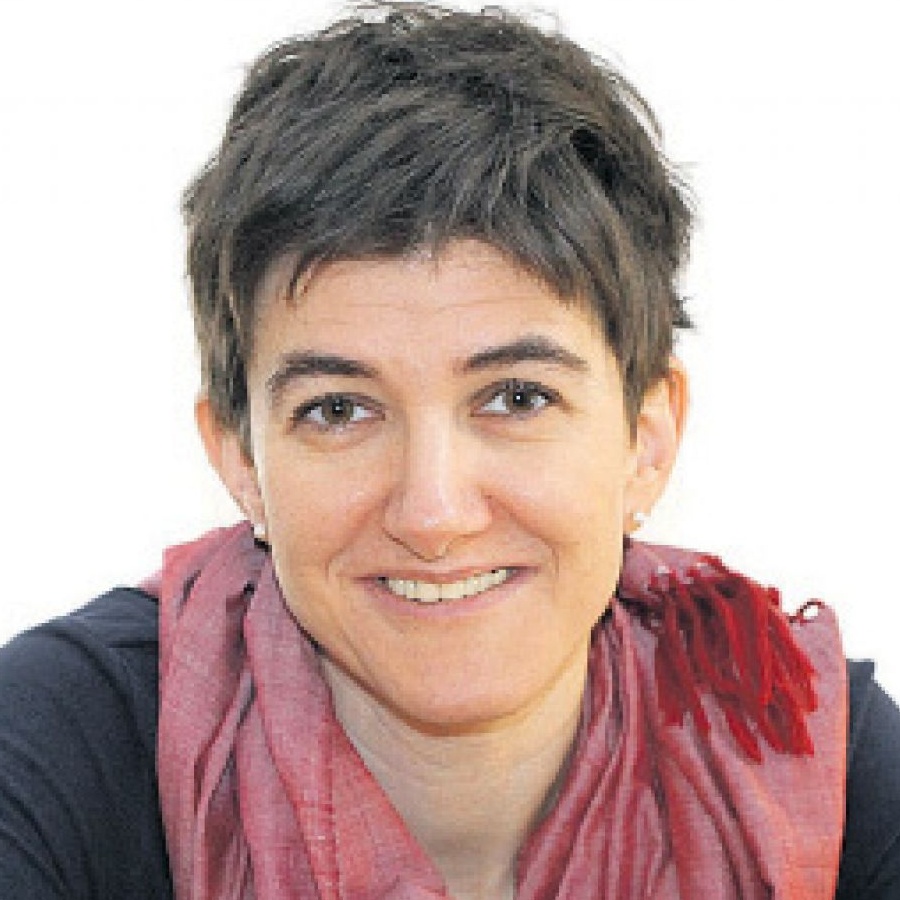 What happens when health professionals struggle with mental health
What happens when health professionals struggle with mental health
By Leonie Mac Fehr

A recent study from Dr Saška Roškar and colleagues found that many mental health professionals do not seek help. On the contrary, suicide stigma was even slightly higher among mental health professionals compared to the general population. It is important to acknowledge that health professionals too are vulnerable to burnout, anxiety, depression, and suicidality and that the same assessment for professionals is needed as for non-professionals. Dr Saška Roškar wants to raise awareness for this often-overlooked population when it comes to mental health and advocates for a change of paradigm.
Leonie Mac Fehr: I was very impressed by your presentation on suicidality among mental health professionals and that you are also focused on breaking with the stigma because in research we tend to talk about "them" a lot. We other a lot as if we were not also involved or could get mentally ill ourselves. Could you please outline what the motivation behind this specific topic was?
Dr. Saška Roškar: There's not a lot of research on it and mental health professionals are not the typical research population. The motivation was to break the stigma and to raise awareness that mental illness is a topic we all can be affected by. But we very rarely, not to say never speak about how mental illness and suicidality affect professionals. Maybe not necessarily mental health professionals, I mean, coaches and so on, but professionals working in the health field in general. So that was the intention behind it to raise the awareness that it's an issue that concerns all of us.
Leonie Mac Fehr You said that one of your practical implications was to address it early on in the curricula. How could this be achieved?
Dr. Saška Roškar: We have to address these topics from two sides – through the professional and unprofessional lense. We can talk about let’s say depression, anxiety, and talk about what you can do with a client that comes to you and suffers from these conditions. The students, I think, need to listen to these issues from a position of a future professional. But next to that, we have to step out of our professional roles. Meaning, that the students also have to listen to these topics from a role of someone who may be completely lay, i.e. from someone who is someone's wife, brother, sister, friend and so on and last but not least, the students have to acknowledge that it is okay to be vulnerable. And the educational process should emphasize this – that despite of being a professional, you are allowed to be vulnerable.
Leonie Mac Fehr: Yeah, I'm a medical student myself and I think that would be a big step forward. I think we also need to address the overall mentality among health professionals, because in medicine, if you want to succeed, you have to “function”, sometimes it seems there's no room to fail.
Dr. Saška Roškar: Yes, I agree with you. And I also think that – having been in this field for a long time - going through this process of formal education, we ourselves develop some kind of feeling that we are invincible, just because we know the studies and the data, because we have a medical degree or are psychiatrists or psychologists. Mental illness affects all of us, it does not choose, it does not ask for your degree. But even so we still think: “No, no, no, no. Ok, it can affect everyone, but it does not happened to me.” So, I think that due course of our formal education we develop this attitude (which probably mirrors our expectations and the expectations of the environment) which is completely wrong and also potentially dangerous.
Leonie Mac Fehr: And what would you recommend to young people that are just starting in the field? What could they do as a preventative measure?
Dr. Saška Roškar: Well, I wouldn't put it on the young people. I would put it on the system. I think that if we put it on young people, there's this danger to put too much responsibility on the individual. We can equip an individual; you can take care of your mental health by doing this and that. But things still can go wrong because we don't exist in a vacuum. We are members of the community, members of the system and I think that the solution must come from the top. I would put more responsibility on the system. We need to start with small children to work more towards mental health literacy, there has been a session about that too. To promote safe environments in which it is safe to open up about mental issues. If you think of psychiatry, I don't think it's ‘safe’ now for them to open up because the coming out is accompanied by the fear of how will their colleagues perceive them, how will their boss perceive them? That is why I think things need to change in the upper level.
Leonie Mac Fehr: That's interesting, because in Germany, psychiatry residents and psychotherapists in training have to go to therapy or so-called sessions on self-awareness or personal experience with a psychotherapist. That means they would go there regularly, but this only applies to this specialty. Would this be a regulation from which all health professions could benefit?
Dr. Saška Roškar: Speaking about mental issues is, I think, kind of like speaking about let’s say for example sexuality. We all think or pretend to be very liberal when we speak about sexuality, but only as long as we speak about someone else's or in general. When it comes to speaking about our own, then we get more precautious and more reserved. And I think it's like that with mental disease.
Leonie Mac Fehr: Such a good metaphor!
Dr. Saška Roškar: We are all very liberal: “Yes, mental illness can affect everyone. Let’s speak about it.” “You're in mental distress. No problem. Go and seek help. It's like if you break your leg. “As long as you don't have to speak about your own mental health history. And regarding what you just said, I think it's different if you have to go to psychotherapy because you're in the process of psychotherapeutic education because it's mandatory. But it's another thing to admit to yourself and to colleagues: “Yes, I am going to therapy because I need it. Because I'm not okay.”
Leonie Mac Fehr: I agree. It’s important to differentiate between these two scenarios because it has an impact on the way we talk about it. But how do you think could change from the top happen then? What would have to change in the system?
Dr. Saška Roškar: We need the elders, the mentors and people who have been in this field for a long time to promote this information to young professionals and students, to say: “Look, this is something that can happen to you or maybe someone close to you. If this is the case, don't be afraid. We have to speak about it. Go and seek help. There will be no penalties or no exclusions, and no marginalization.“ I think the culture has to change and I think this is also an important message to other people outside, to the general public, because to be honest, I think if we speak to others and encourage them to seek help when they’re in mental distress and we ourselves don't do it, I think this is hypocritical.
Leonie Mac Fehr: Very critical closing remarks and a much-needed new perspective on the topic. Thank you!
 Written by Leonie Mac Fehr, MSc Global Health from Maastricht University, medical student at Hannover Medical School with a special interest in racism in medicine, minorities health, planetary health, and global health workforce; and EUPHAnxt fellow at the 15th European Public Health Conference, held 9-12 November 2022 in Berlin, Germany.
Written by Leonie Mac Fehr, MSc Global Health from Maastricht University, medical student at Hannover Medical School with a special interest in racism in medicine, minorities health, planetary health, and global health workforce; and EUPHAnxt fellow at the 15th European Public Health Conference, held 9-12 November 2022 in Berlin, Germany.